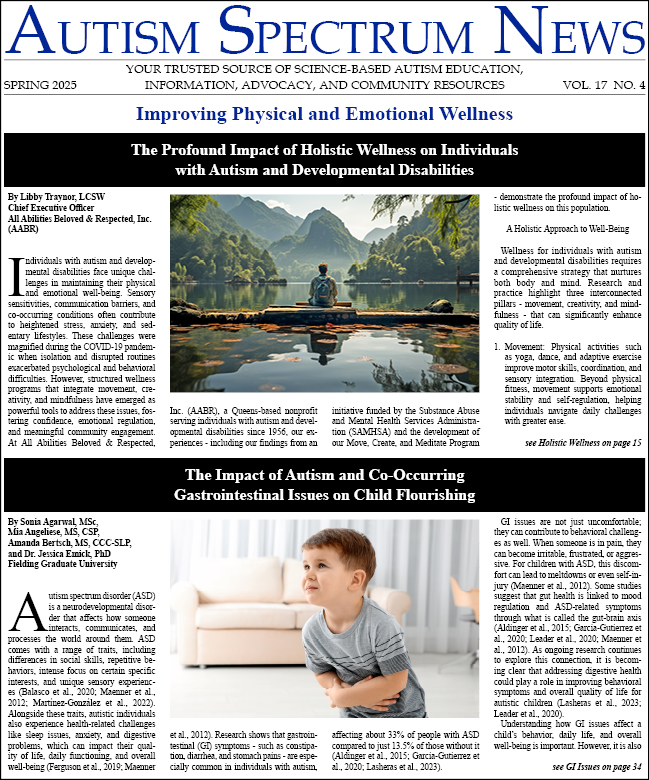-
Using Explicit Instruction to Teach Self-Advocacy
Those diagnosed with Autism Spectrum Disorder (ASD) can benefit from alternative pedagogy, and the utilization of different approaches for more abstract skills should be a primary focus. Self-Advocacy is a set of skills that involve executive functions, social communication, and adaptive functions....
-
Self-Advocacy and Successful Onboarding and Maintenance of Employment
The topic of employment struggles for those on the Autism Spectrum tends to focus on gaining meaningful work opportunities, while the conversation needs to continue by looking at sustaining employment. In a 2018 study, only 14.3% of the sample sustained employment for a period longer than 18 months...
-
The Care and Keeping of Home: How Executive Function Skills Aid in Daily Living
Navigating independent living requires balancing responsibilities and monitoring oneself. All individuals must strike that balance that makes the most sense for them and their lifestyle regardless of neurodiversity. To execute daily living tasks, one must self-start and sustain motivation...
-
“How Was I Supposed to Know?” Navigating the Unwritten Curriculum Through Executive Functioning Supports
We are constantly navigating contexts that we may not have been explicitly guided through. Along the way, there was some experience of making sense of these unexplained rules. Even though no one specifically addressed them, you knew where the line was. This doesn’t always ring true to many...
-
Autism Spectrum Disorders in the Home: How to Thrive as a Family Unit
Various research studies have shown that early intervention for children with autism spectrum disorders (ASD) is important for providing the tools and strategies needed for long term success in areas such as education, career, and life in general (McEachin, Smith, & Lovaas, 1993). It is...
-
Interpersonal Relationships and Social Engagement in a Virtual Landscape
The Diagnostic and Statistical Manual of Mental Disorders (DSM-5) has identified communication and interaction with others as specific areas of deficit for many individuals with ASD. Difficulty making eye contact, initiating and sustaining a conversation, code switching, and perspective taking are...




